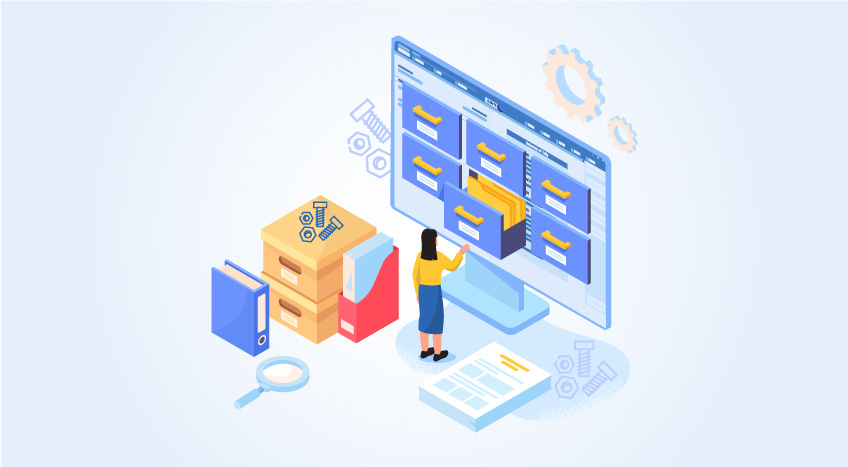Pramit Pratim Ghosh |Updated on: December 30, 2021
On 15th of August, 2018, India will complete 71 glorious years of independence. Similar to the political landscape, the business landscape too has undergone a plethora of changes – the most important of which has been the Digital India drive. Over the years, even the smallest of businesses have turned towards technology and business process automation, either to clean up their billing processes, or to enter the world of e-commerce, or more recently because of the GST trigger. Unfortunately, a fair section of small businesses still suffers from slow or nil growth, because each of their processes continues to be a manual business process.
More often than not, business process automation is looked upon as a time-consuming or costly activity, which tends to reduce the advantages of moving to computerized systems. Thus, it is important for all business owners to develop an informed view on digitization, so that they can take the right decision, and attain the much required freedom from manual methods, which will help them to expand their business possibilities.
In the run up to 71 years of Indian independence, here’s our blog, where we have attempted to list down the many advantages of automation:
Speed & Accuracy – Freedom from time wastage of manual business process
One of the key differences between manual business processes and automated systems is speed. Business process automation not only helps to process business data faster, but also allows faster data entry and reporting. Add to that the boon of accuracy and you have a strong case for digitalization of business. Traditional manual accounting is a tedious process requiring accountants to spend copious amounts of time mathematically checking numbers in the company’s accounting information. Simple mistakes such as transposing numbers or entering information into the incorrect column could create significant errors – which can be eliminated via automation.
Because of its efficiency and ease of use, computerized systems also allow you to improve inventory control and payment collection, saving time and improving cash flow. As a business owner, one can potentially spend less time looking for errors and more time analysing information for decision purposes. The plethora of reports a business owner has access to while using automated systems – stock valuation, profit and loss, receivables and payables, return on investment – is surely a game changer for any business.
Integration – Freedom from confusion of manual business process management
Another key aspect, which most business owners will need to appreciate, is the importance of integration. Accounting, inventory, compliance are not isolated activities, but are inter-linked with each other, having implications across the businesses. For instance, while accounting, a single transaction is bound to affect your financial records, your stock, as well as your taxes. This indeed becomes a challenge in a manual business process, wherein, the same transaction may need to be recorded at multiple places to ensure that all relevant ledgers are affected, whereas in computerized systems, the same can be achieved by the click of a button.
Compliance & Security – Freedom from problems of manual process
Last but not the least, compliance under GST is something, which can be best handled by automating your systems. Early prevention, quick detection and hassle-free correction of errors, is why digitizing business will surely score over manual business processes any day, especially in the era of GST, which demands a fair level of compliance supported by the right technology. Equally important are the ever-growing concerns surrounding data security and data storage – and it goes without saying that a business using manual systems will obviously find it very difficult to maintain historical business data over the years in bulky books, and also to recover data in case of any mishap or breach of trust within the organisation.
Thus, it is safe to conclude that the preferred step for businesses at this point – is to move on from the age-old system of maintaining manual books, and embrace automation across all aspects of business – accounting, inventory, compliance, banking and much more. Most importantly, moving on from manual systems will guarantee freedom from stagnation, freeing up time for a business to focus on growth, efficiencies and velocity of commerce.
Latest Blogs

Nuts & Bolts of Tally Filesystem: RangeTree

A Comprehensive Guide to UDYAM Payment Rules

UDYAM MSME Registration: Financial Boon for Small Businesses

Understanding UDYAM Registration: A Comprehensive Guide

MSME Payment Rule Changes from 1st April 2024: A Quick Guide

Are Your Suppliers Registered Under MSME (UDYAM)?

